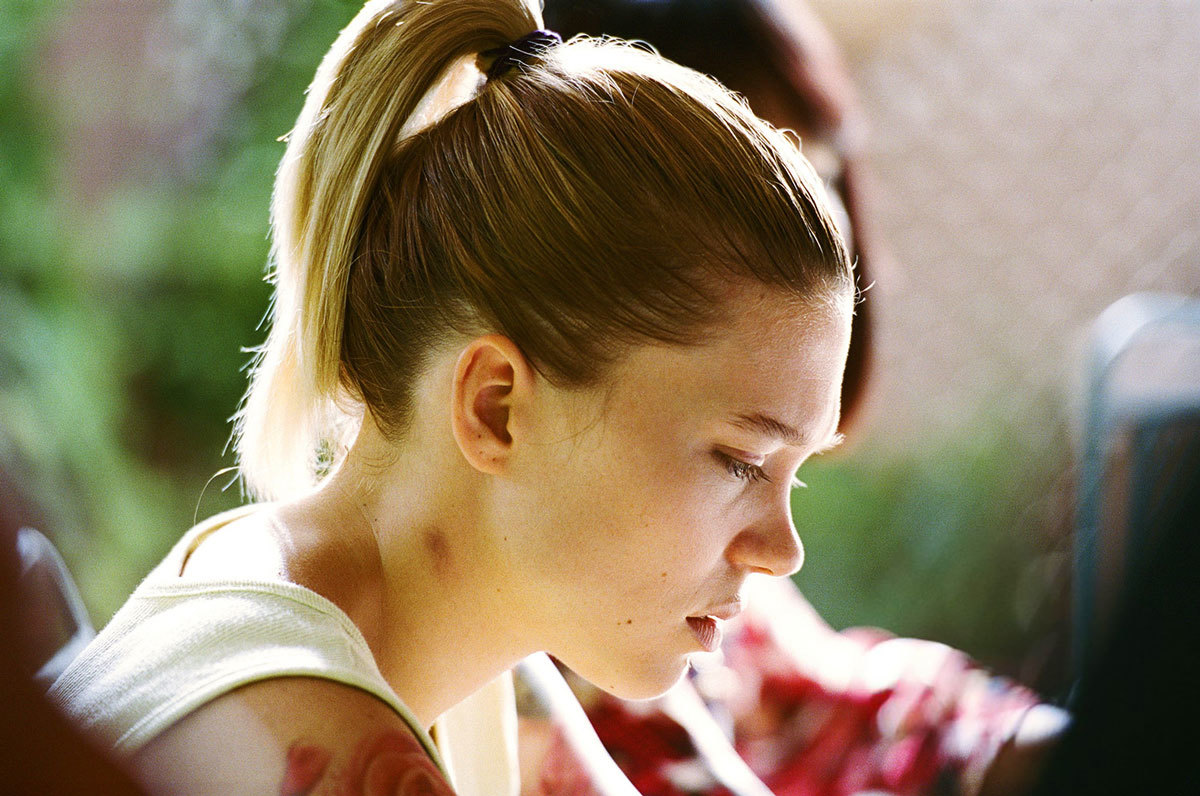It feels entirely clichéd to talk existential angst with a French actor, but that’s exactly where a conversation with Léa Seydoux begins.
“Sometimes I can be extremely relaxed about things and sometimes extremely anxious,” Seydoux says, as we sit down in a London hotel suite to talk about her new film. “I was afraid of everything when I was young, in my 20s. I was so terrified about everything. Life. I was afraid to die, I think.”
The face of a French fashion powerhouse (Louis Vuitton) and the biggest crossover of contemporary European cinema (from the Palme D’Or winning Blue Is the Warmest Color to Bond girl in Spectre) it is hard not to focus on just how French Seydoux is.
But even if a certain directness on matters of life and death feels very much in the national spirit, there are other reasons why we begin here. Most pressingly, Seydoux, 31, is expecting her first child with boyfriend Andre Meyer. “It’s nice,” she says about the pregnancy, “You feel more relaxed. It’s natural Xanax.”
Secondly, there is the matter of Seydoux’s new film It’s Only the End of the World, a melodrama about a family with its own existential crisis. The film, from art house cinema’s wunderkind Xavier Dolan, sees a young gay playwright Louis [Gaspard Ulliel] return home to his estranged family to tell him he is dying. Seydoux plays Susanne, Louis’s younger sister, and the least touched by familial madness.
The Grand Prix winner at Cannes last year, It’s Only the End of the World is unsettling, claustrophobic, and utterly beguiling. And even if it does go heavy on the melodrama — there’s a lot of shouting — the film’s woes are eased by Dolan’s trademark poppy flourishes.
Dolan’s penchant for radio friendly songs didn’t put Seydoux off. “I kinda like his taste!” she laughs. “It’s sometimes very cheesy but that’s what I like with him. He’s not afraid.”

What did you like most about working with Xavier?
He’s full of life. That’s what I like. It’s very moving to see someone who is so attached to [living]. Because I think he is afraid of death, like all of us. The way he fights for life is extremely inspiring.
What drew you to this film?
Family. I love the subject. For me, cinema has to be about inner language. It’s the art of what’s not said — what’s underneath. Everyone can relate to this film because it’s about how you can define yourself in the family circle, in society, and many important emotions like frustration, the hopes you have, your desire, and the gap between reality and dreams. When you confront reality and how it’s different from what you thought. How you project yourself. It’s many different feelings. I’ve never seen a film about this.
A lot is left unsaid.
It’s a tragic story and unfortunately that’s life. It can happen to anyone. You are going to die from a disease, you know this and the reality is too painful. People are touched by the film because it is real. It’s not a blockbuster or just entertainment. It’s about people, it’s real, that’s why I love this film.
Your character acts immature but also seems older than her real age.
She’s young but not so young, maybe 23 or 24, but you already see that maybe it is already too late for her. In the house, she’s oppressed by her situation. I don’t know if you see a future for her. All the characters are not really conscious of themselves except Louis who has this eye on himself. He knows the situation — he knows it’s hard for them to listen to what he has to say.

Why is he removed?
It’s culture, class, and the fact that he’s going to die. He’s been outside this world. We imagine he lives in a great city and is a famous writer. So he became culturally very different from his family.
Do you understand any of that?
Even me, I sometimes feel very far from my family even if we are evolved from the same culture, they are cultured people. But sometimes when you come back from traveling you feel different because you have experienced the world, the outside, and sometimes family can be claustrophobic.
Many people, especially young lesbian women, were inspired by your role in Blue is the Warmest Color. Are you aware of the impact?
Yeah, of course. But you know I feel very close to my characters. I feel like I am playing myself all the time.
People would have fallen in love with you.
I can always see that there are lesbians around [when she meets fans]. I like it. It’s very cute. I’m very proud of it. While I was shooting, I felt that I was a lesbian. I like the feeling that girls can get a crush on me. When you’re an actor, you like people to fall in love with you. I like to make people dream, in a way. I’ve been dreaming, even for me. I’ve seen some actors and had that crush.
It’s Only the End of the World is in cinemas now.
Credits
Text Colin Crummy
